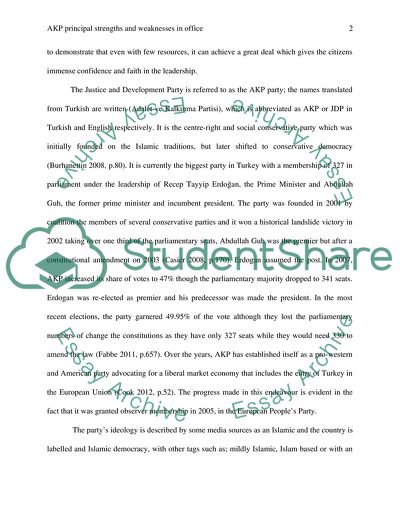Cite this document
(AKP Principal Strengths and Weaknesses in the Office Report Example | Topics and Well Written Essays - 3750 words, n.d.)
AKP Principal Strengths and Weaknesses in the Office Report Example | Topics and Well Written Essays - 3750 words. https://studentshare.org/politics/1823634-what-have-been-the-principal-strengths-and-weaknesses-of-akp-in-office
AKP Principal Strengths and Weaknesses in the Office Report Example | Topics and Well Written Essays - 3750 words. https://studentshare.org/politics/1823634-what-have-been-the-principal-strengths-and-weaknesses-of-akp-in-office
(AKP Principal Strengths and Weaknesses in the Office Report Example | Topics and Well Written Essays - 3750 Words)
AKP Principal Strengths and Weaknesses in the Office Report Example | Topics and Well Written Essays - 3750 Words. https://studentshare.org/politics/1823634-what-have-been-the-principal-strengths-and-weaknesses-of-akp-in-office.
AKP Principal Strengths and Weaknesses in the Office Report Example | Topics and Well Written Essays - 3750 Words. https://studentshare.org/politics/1823634-what-have-been-the-principal-strengths-and-weaknesses-of-akp-in-office.
“AKP Principal Strengths and Weaknesses in the Office Report Example | Topics and Well Written Essays - 3750 Words”. https://studentshare.org/politics/1823634-what-have-been-the-principal-strengths-and-weaknesses-of-akp-in-office.


